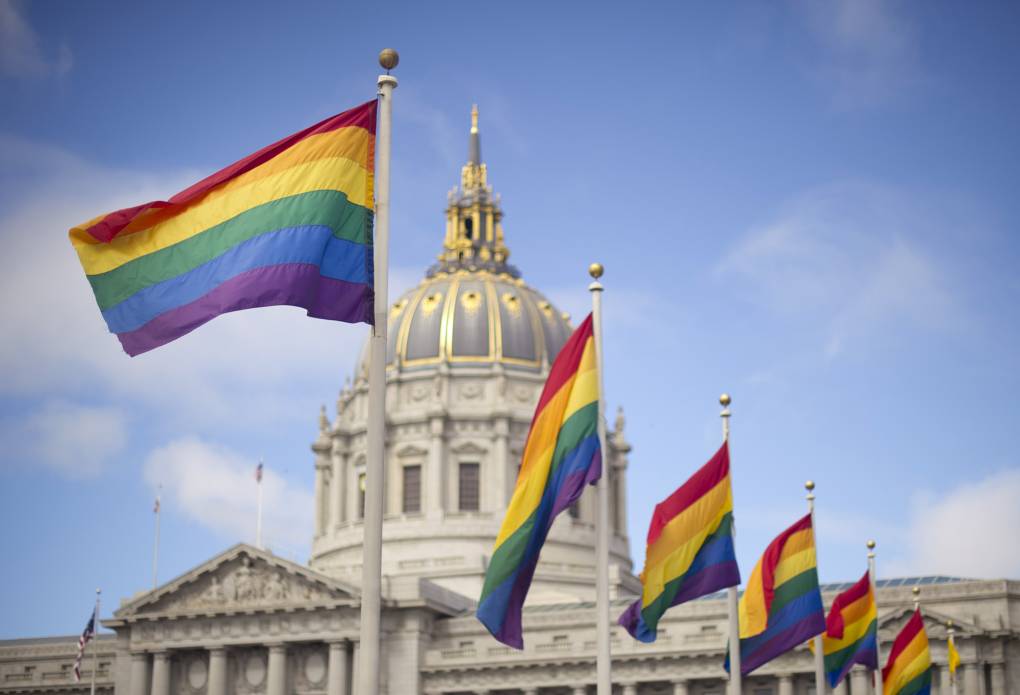
Knowing that LGBTQ people often live in concentrated urban areas like San Francisco is essential because Bay Area climate scientists recently found that human-caused climate change will cause atmospheric rivers to . These storms can cause significant flooding, and KQED reporting from 2023 found that isn’t prepared for future storms.
On New Year’s Eve 2002, parts of San Francisco’s Leather & LGBTQ Cultural District flooded during an atmospheric river that swamped the region. The nearest grocery store to the area, Rainbow Grocery, also flooded.
‘Our findings probably understate the true impact’
The researchers relied on a mix of U.S. Census data and climate risk assessment data from NASA and the Federal Emergency Management Agency.
Shaw said his team considered same-sex couples because the U.S. Census gathers information on cohabitating same-sex households but does not broadly collect sexual orientation or gender data.

“This study helps to shine a light on what is likely a much larger and more complicated picture,” he said. “Our findings probably understate the true impact that climate change is having on LGBTQ people.”
The new research moves the needle in helping the nation understand who is at risk of climate disasters, said UC Irvine sociology professor Michael Méndez. He previously studied how of disaster planning.
“The needle is moving slowly,” Méndez said. “These disasters are not happening in isolation. If an individual is feeling discrimination, or a lack of safety in their home and a disaster happens, they can feel even more vulnerable.”
But what Méndez said the study doesn’t reveal is who the same-sex couples are in terms of rage, income and their positions in society.
“It could’ve gone a little further in terms of highlighting that, just because you’re LGBTQ and you’re in a geographic area that has a higher propensity for climate risks, does not necessarily make you socially vulnerable,” he said.
In February, Sen. Steve Padilla (D-San Diego) announced SB 990, which would establish best practices for state and local governments when addressing the needs of the LGBTQ community after a disaster.
“The values we have fought so hard to uphold cannot disappear at the first sight of trouble,” Padilla said in a press release.
Solutions are possible
The study authors recommend that policymakers, cities and providers ensure that disaster relief is accessible and given without discrimination based on sexual orientation, gender identity or gender expression.



